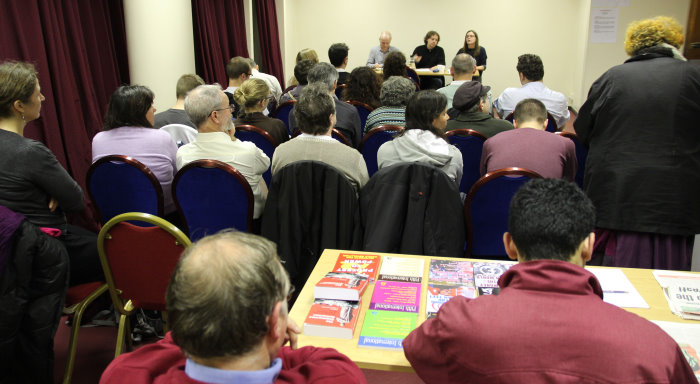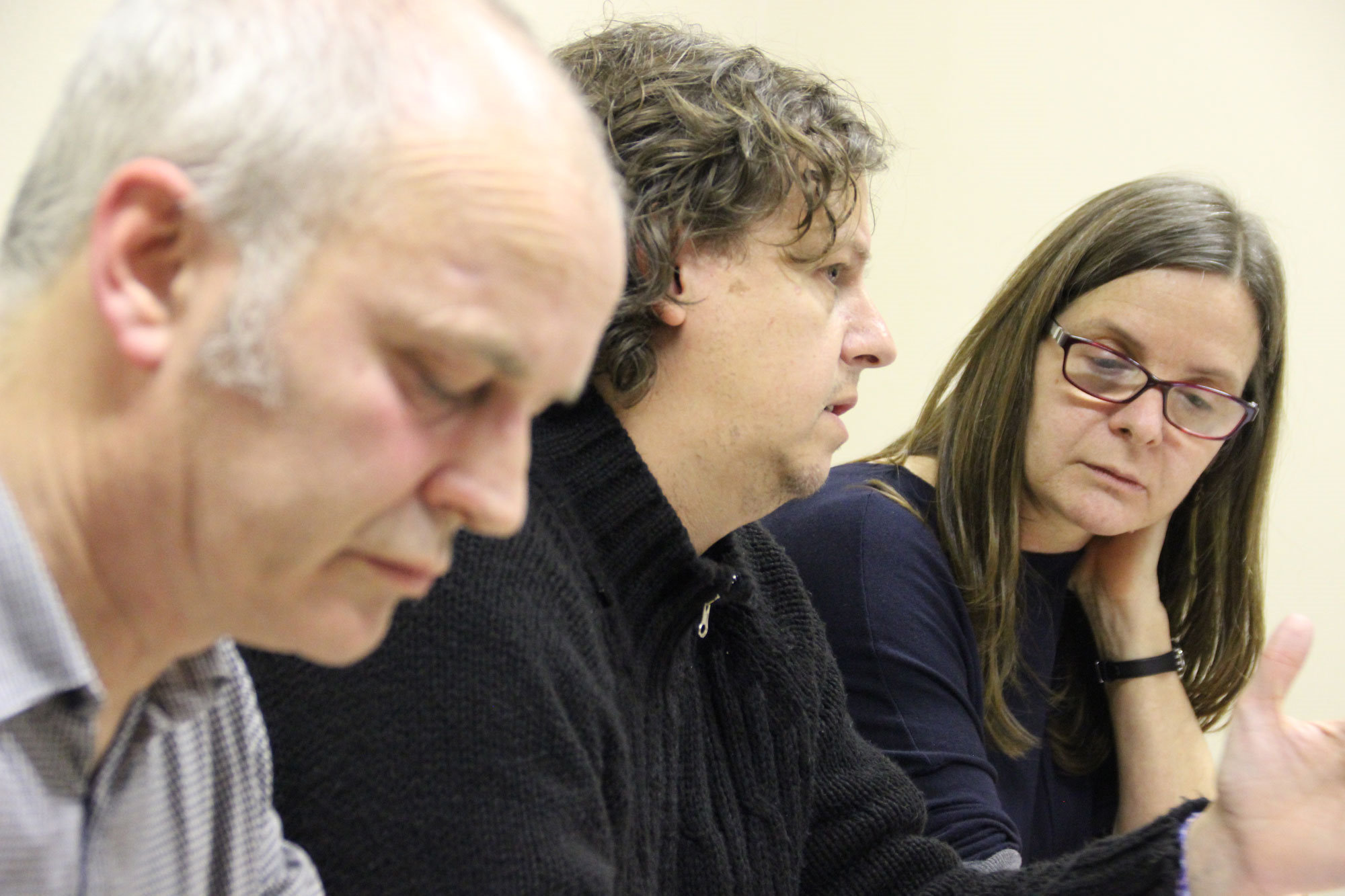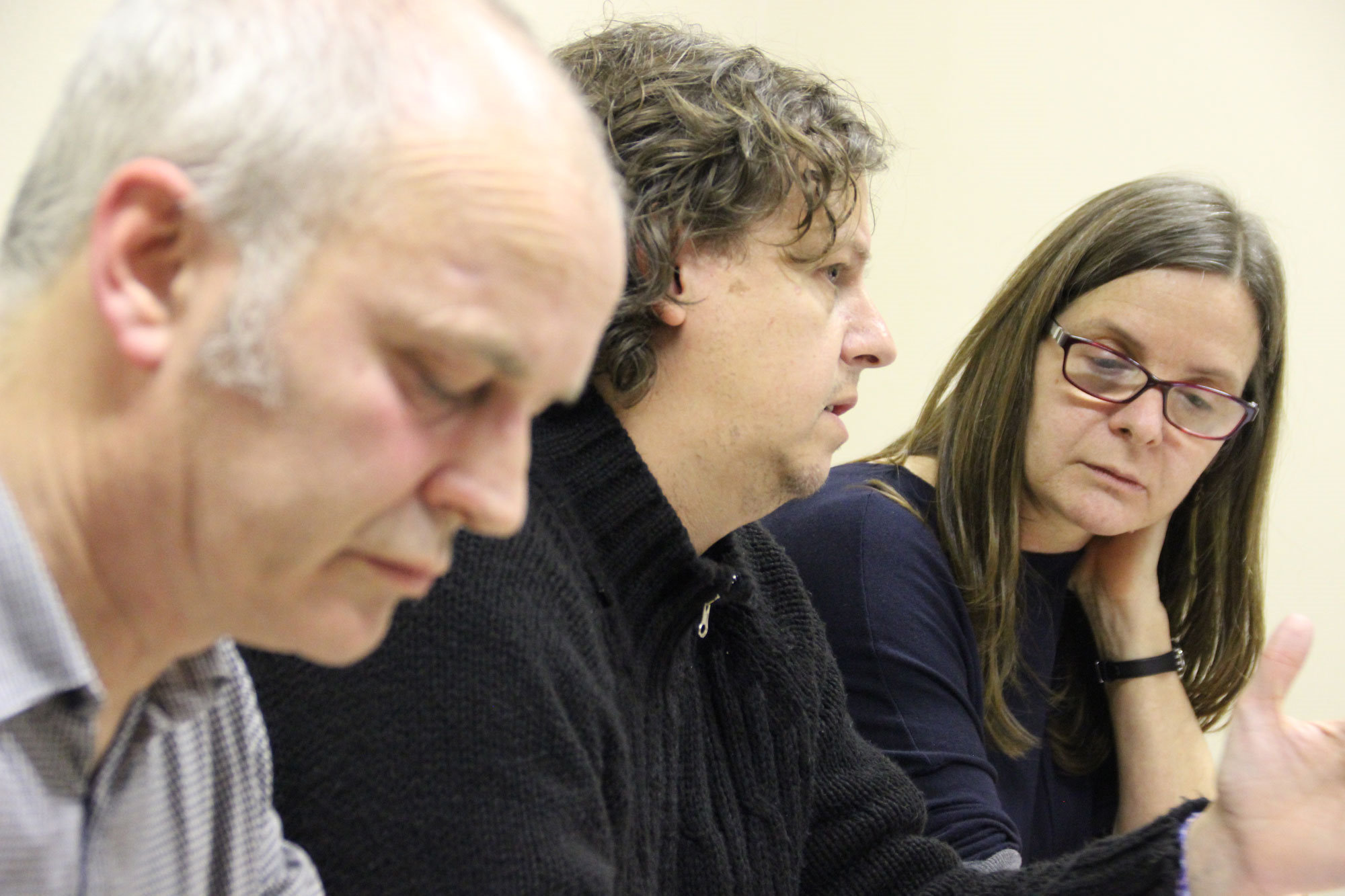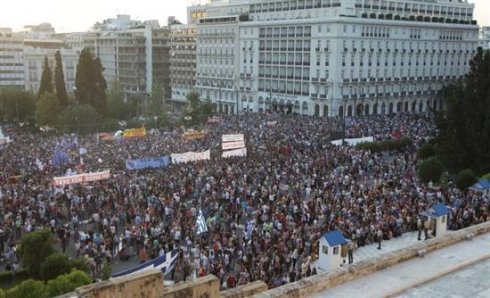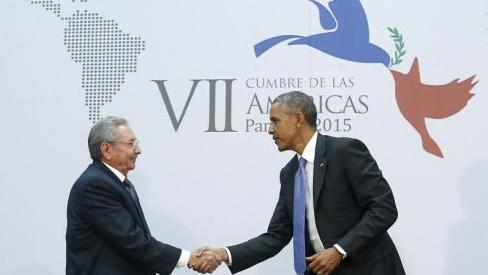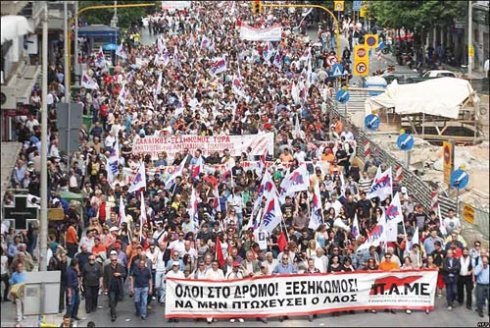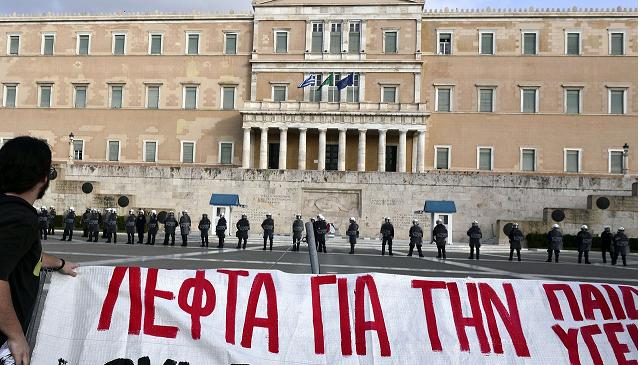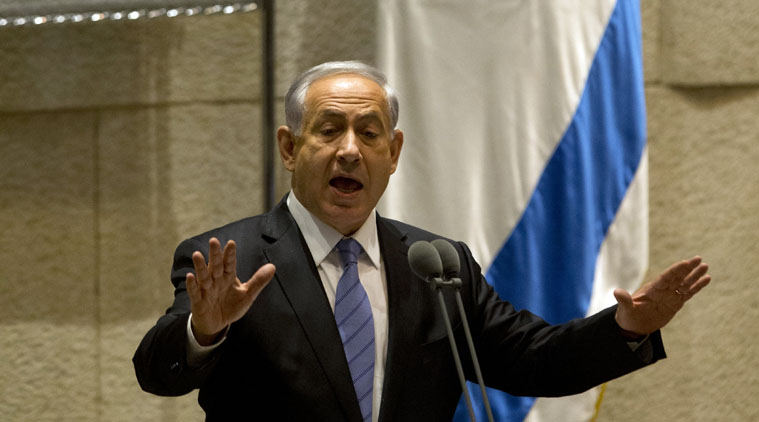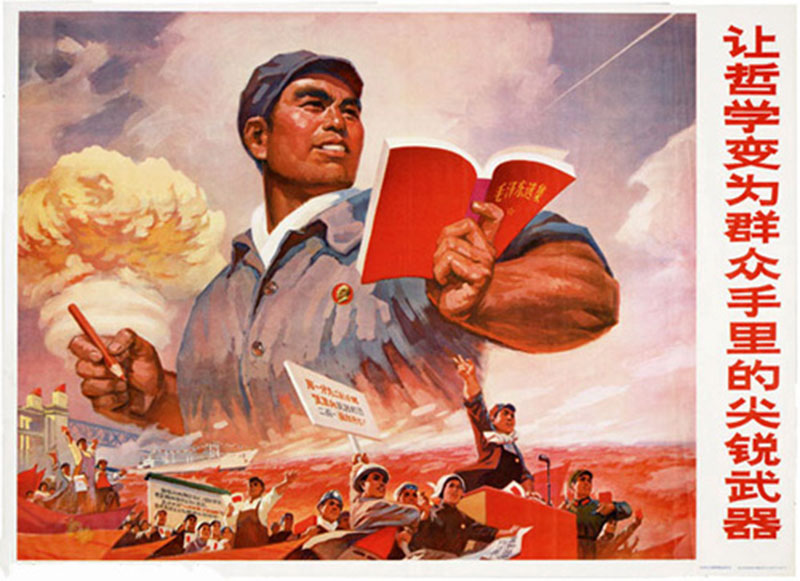Christian Castillo’s internationalist tour through Europe
23/01/2014
During the month of January, Christian Castillo will be visiting several countries of Europe to get to know at first-hand the situation of the workers’ movement and of the Left in one of the epicenters of the capitalist crisis. In addition, this political tour has as an aim disseminating the experience of the revolutionary Left in Argentina, both the political work of the PTS in the working class and among the youth, and the intervention in the FIT, particularly the revolutionary use of parliamentary positions to develop the struggle of the exploited, a task that is closely linked to the fight to build a combat party based on the class struggle. The example of the FIT as a front of class independence, with an anti-imperialist, anti-capitalist and socialist program, is very important in Europe, in the face of the crisis of the projects of broad parties, without a strategic delimitation between reformists and revolutionaries, adopted by the main tendencies of European Left. In this interview, that La Verdad Obrera carried out, we give an account of the first activities that took place in Barcelona and London.
What activities did you carry out in London?
After being in Barcelona with our comrades from Clase contra Clase and the workers of the historic PANRICO strike, I came to London, invited by comrades from the British Left, that asked me to give two talks on the situation in Argentina, the election of the FIT and the politics of the PTS and the FT, one talk in Lambeth, in the south of London, and the other in the city center. There was a lot of interest from the participants in finding out what our explanation for the results obtained by the FIT was, what role we were deciding to play in Parliament as revolutionary Deputies, and what we were suggesting now, from the PTS, as new challenges.
We explained that the election result was a combination of objective processes like, in the context of the end of the Kirchners’ cycle, the beginning of the breaking away from the government, of groups of the working class, that had already been expressed in the general strike of November 20, 2012, and a politicization towards the left among groups of young people, with the existence of a Left that kept itself independent of the government and all the employers’ variants, and that had won important positions in the movement of the masses. We indicated that, for us, the results obtained by the FIT pose the task, for us, of going for the conquest of the unions, to put them at the service of the class struggle, and to move forward in building a big revolutionary party of the working class. Also, together with Claudia Cinatti, we had meetings for exchanges with leaders of the parties of the local Left, like Peter Taaffe of the Socialist Party and its international organization, the CWI, Alex Callinicos of the SWP and Dave Stockton of Workers Power, all very interested in the Argentinian situation and the FIT, as well as discussions starting from what we set out in the Manifesto for an International of the Socialist Revolution, which we are promoting from the FT.
How did you view the situation of the Left in England?
The workers’ movement has been suffering big blows, just like in the whole of Europe. The union bureaucracy has played a big role in allowing the government’s attacks to proceed and preventing the resistance that took place in 2010 and 2011, mainly in the public sector, among government workers and students, from going to a higher level. The local Left, frequently adapted to the groups "of the Left" from the union bureaucracy, was not an alternative in these processes. The biggest crisis is that which the Socialist Workers Party, that has suffered a very big loss of its members, is going through. Up to now, what has predominated among those who have moved away from the SWP, are positions criticizing "Leninism," which they erroneously identify with the bureaucratic internal regime of their organization. In reality, the SWP is paying the price for the combination of a policy of adaptation to different political phenomena, like their election alliance based on a reformist program, without setting out class independence, with George Galloway and non-leftist groups of the Muslim community in the RESPECT coalition, with a hyper-centralist internal regime, a Molotov cocktail that, as I understand it, explains the crisis beyond its specific trigger, a complaint of abuse by one member of their leadership that turned into a public fact and was used by the press to discredit the Left in its entirety. Hence the experience that we are having in Argentina will be a model for those who are attempting to make a revolutionary response to this crisis, by confronting different reformist projects, like the one being promoted by the majority leadership of Left Unity, the new coalition that, outside of the Labour Party – which is a party that has become completely bourgeois, but that continues to be supported financially and politically by the unions – the film-maker Ken Loach is promoting, and where various groups of the local Left are participating. While the most reformist groups are presenting Syriza as the model to imitate, the experience of the FIT and our advances in the workers’ movement show that the Left does not have to water down its program, to advance in its influence on politics and the unions, among the workers and young people, quite the contrary.
How will the trip continue?
Now I am headed for Berlin, where I will be in a chat that our comrades in RIO are organizing together with other organizations of the local Left, and to participate in the mobilization that takes place every year, in homage to Rosa Luxemburg and Karl Liebknecht. Then I continue with talks scheduled in Toulouse, Barcelona, Madrid, Athens, and Paris, as well as with meetings with leaders and militants of the Left of each country.
Christian Castillo in Spain
Beside the working women and men in struggle at Panrico
The comrades of Clase contra Clase [CcC], a fraternal party of the PTS, together with the working women and men in struggle at Panrico, organized an end of the year meal, to which Christian Castillo was invited, and he brought his support from Argentina. There the comrades told how they have now spent almost 100 days in struggle, the longest strike under democracy in Catalonia, and that it is a big school in which they are learning how powerful they can be, by confronting the maneuvers of the union and seeking solidarity. They expressed gratitude for the support that has been given them from CcC, because, from the first moment, they were on the picket lines and in every action.
Christian Castillo gave them his support, by setting out that: "… We who follow the struggle of the workers throughout the world, have portrayed the conflict at Panrico in our paper, La Verdad Obrera. As in every conflict of the working class, we know that the possibility of recomposition, not only of the comrades that are struggling, but of serving as an example, is at risk…. In our country, we participate actively in the union struggle and, together with this, we are trying to build a political alternative of the working class…. We got 1,200,000 votes, 3 national Deputies and several provincial Deputies…. I was invited by the comrades of various countries of Europe to talk with workers and organizations of the Left, to set out the need for the rebuilding of the working class and of international political action, to be able to bury this capitalist system. For that, a big greeting for you, and long live the international struggle of the working class!"
Then, the Deputy for the Province of Buenos Aires participated in the picketing of the Panrico factory on December 31, showing solidarity with the workers and contributing to the resistance box (strike fund) for this great historic strike.
